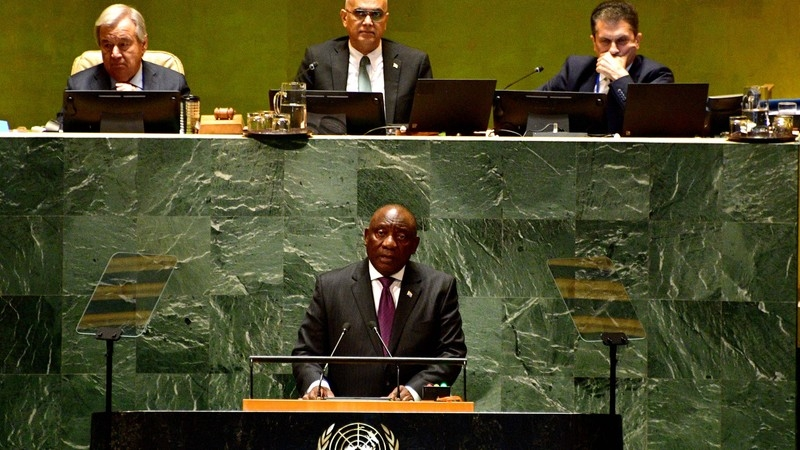
THE ongoing United Nations 78th General Assembly (UNGA78) has reignited the sanctions debate.
South African President Cyril Ramaphosa, in his address on Tuesday in the United States, said sanctions against Zimbabwe were hurting ordinary people.
Being a regional powerhouse, South Africa’s voice on such matters carry weight — albeit a negative or positive response from countries, which sanctioned Harare.
But to bring the sanctions debate into perspective, it is imperative to put things into context.
How and why is Zimbabwe under sanctions? Should the sanctions still remain and have they achieved intended goals? These are some of the pertinent questions I will address hereunder.
The historicity and historiography of the sanctions has been adequately done.
However, for the purposes of the issue, which has been reintroduced to the table by Ramaphosa, it is essential to remember a few talking points.
At the turn of the century Anglo-Saxon nations — the United States of America (USA), Canada, Britain, Australia and New Zealand – imposed “smart” sanctions against Harare for alleged brazen human rights violations, electoral fraud and corruption.
- Power crisis needs practical solutions
- Dangers of Arab Spring in SA
- Zimbabweans fork out US$24m for SA permits
- Power crisis needs practical solutions
Keep Reading
It has been 22 years since the USA gazetted the Zimbabwe Democracy and Economic Recovery Act of 2001 (Section 4C titled Multilateral Financing Restriction) and came up with the Specially Designated Nationals and Blocked Persons (SDN) List, which now has 85 individuals and 56 companies or organisations.
Britain and the European Union also has a set of punitive measures.
Scholars have researched about the sanctions and some agree that the West was responding to the land reform programme, which saw the late President Robert Mugabe implementing a bloody campaign to change the status quo.
Historically, Mugabe, himself once a darling of the West, corrected inequalities as researchers say in 1914, there were 23 730 white settlers, who enjoyed 19 million acres of fertile land compared to 752 000 Africans in 21 390080 acres of infertile lands - the reserves.
Mugabe argued that colonialists violently grabbed the land during the oppressive colonial era by Rhodesians for 90 years.
The land distribution patterns were systematically discriminatory through harsh laws such as the Land Apportionment Act (1930) and Tribal Trust Lands.
This, according to Mugabe, was the basis for the land reform.
The West was unhappy. It angrily reacted with sanctions.
According to the US State Department: “The Zimbabwe sanctions programme targets human rights abusers and those who undermine democratic processes or facilitate corruption.
“We again call on the Zimbabwean government to take meaningful steps towards addressing the root causes of many of Zimbabwe’s ills, including corrupt elite and their abuse of the country’s institutions for their personal gain.
“Ahead of the 2023 elections, it is imperative to ensure Zimbabweans have the opportunity to vote elections that are free from violence, repression, and electoral manipulation”.
But now that the 2023 elections are over and some elections observer missions, for instance, Sadc and the European Union, produced adverse interim reports, it seems there is no change of behaviour on Harare as anticipated by the West.
Given this scenario, it is highly likely that the sanctions will remain.
However, the suffering by ordinary Zimbabweans has to be taken into consideration. The so-called targeted individuals and organisations are so cash-rich that their livelihoods are not affected. I do propose here that dialogue is the best way forward.
President Emmerson Mnangagwa still has five more years in office. This is a long time. Both the Anglo-Saxon nations and Mnangagwa must come to the engagement and re-engagement negotiating table.
Harare has to address some genuine concerns around human rights, electoral reforms and corruption.
On the flipside, the West has to consider how poor people will continue suffering.
Sanctions have been in place for 22 years but there has been bickering. For the sake of the ordinary citizens, a compromise is important.
Both Zimbabwean authorities and Western governments have a responsibility to end the sanctions regime and open a new era of negotiations.











